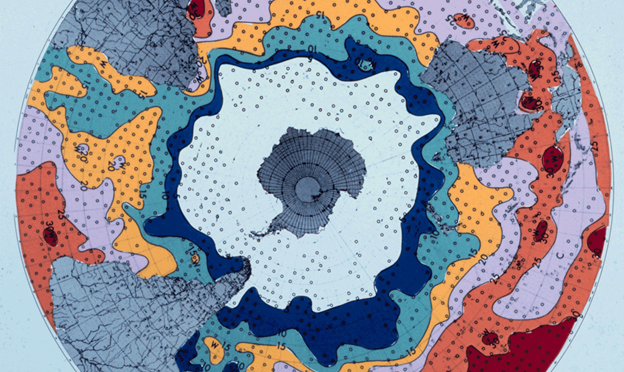Climate Change, the Asia-Pacific and a Case of Western Hypocrisy
Posted on : February 25, 2020Author : AGA Admin

The conversation around climate change has made some of its most significant achievements over the last couple of years. Despite the lack of proper consensus, ambiguity, and logistical confusion, climate change has made its way into national and international politics across the world as policies, campaigns, and laws. However, while following this conversation, what becomes apparent is the fact that the Global South is often away from the spotlight. The recent Australian bushfires collectively caught the imagination of people across the world and made us question the kind of world we are living in and the futures we want to build for ourselves. Yet it is surprising that ecological challenges of the Asia-Pacific, one of the most disaster-prone regions of the world and home to the of the oldest biological heritages rarely make headlines.
The geographical position of the Asia-Pacific region makes it susceptible to rising sea levels, weather extremes, droughts and floods that affect various aspects of human security- health, safety, income, and nutrition. Since most of the countries in the region are developing nations, they face the double threat of struggling to raise living standards, while at the same time battle the effects of climate change. The past year saw devastating consequences for the region and studies suggest that Asia-Pacific was hit the hardest by climate change. India and Pakistan together faced a record-breaking heatwave during May-June 2019, and Jacobabad in Pakistan saw a temperature of 51-degree Celsius, making it the hottest place on earth. The heatwave turned deadly as it claimed the lives of more than 100 people in the region of Bihar, India. With the monsoon rains delayed, the heatwave was the second-longest ever recorded in the region. In southern India, Chennai faced an acute water crisis and catastrophic monsoon rains flooded areas across Bangladesh, Nepal, India, and Pakistan. What was also extremely concerning was the severe water shortage and dry-period faced by Southeast-Asia’s largest river- the Mekong, spanning across six countries, from its source in the Tibetan highlands through Myanmar, Thailand, Laos, and Cambodia before draining into the South China Sea in Vietnam. The dry spell, coupled with late monsoon rains, not only threatened food supply for millions of lives, but also endangered the lives of the many rice farmers directly dependent on the monsoons and the river water for irrigation. While Asia-Pacific’s poorer communities contribute the least to greenhouse gas emissions, they are the ones who feel the consequences of climate change the most. Unpredictable weather patterns can lead to failing crops, spiking food prices, and spreading diseases that threaten to wipe out decades of development gains.
Over the many ecological and environmental crises faced by the Asia-Pacific region, the most shocking and devastating on the larger scale has to be the forest-fires in Indonesian Borneo and Sumatra in September 2019 that did not receive a quarter of coverage, attention or sympathy from the world community that the Australian bushfires did. The thick clouds of smoke disrupted air travel, forced schools to close and sickened many thousands of people and the poorly equipped firefighters were unable to bring them under control. The Indonesian bushfires, that emitted more carbon monoxide than the Amazon forest fires; laid waste to an area several times the size of Singapore and claimed at least two lives. The hazardous haze that blanketed Indonesia for months has also caused long-term damage to human lives, leading to reduced child survival rates, respiratory diseases, and other health impacts, according to a study by the European Union’s atmosphere observation programme.
This brings us to the problem with current climate change conversation, that is largely appropriated by Westerners who focus on issues that specifically affect Westerners (such as the Australian bushfires, or the California bushfires) or on issues that push forward a Western political narrative, such as the backlash against the president of Brazil as a populist leader unwilling to tackle the fires in the Amazon. Since the Indonesian fires did not affect either side, they were largely ignored which shows that the conversation around climate change is driven by western political and economic frameworks that do not pay attention to or try to understand the subjectivities of the societies, communities, and socialisations of the Global South. Instead what we get are blanketed declarations such as “Zero Waste” or “no loss of nature from 2020” from people who mostly view the Asia-Pacific region as a tourist spot. What is important to acknowledge is the fact that climate change implementation is something that has to start at the micro-level since it is intrinsically connected to the lives, cultures, and lifestyles of people of various different contexts. Even states with progressive climate change policies such as Canada have promoted the exploitation of tar sands and the construction of new pipelines to export oil globally. What the need of the hour is larger inclusivity of knowledge and literature from the Global South that are adequately represented globally and a deeper understanding of the political economy of the region and promoting concentrated local action to implement climate change policies.
Shromona Jana
Intern, Asia in Global Affairs





Leave a Reply